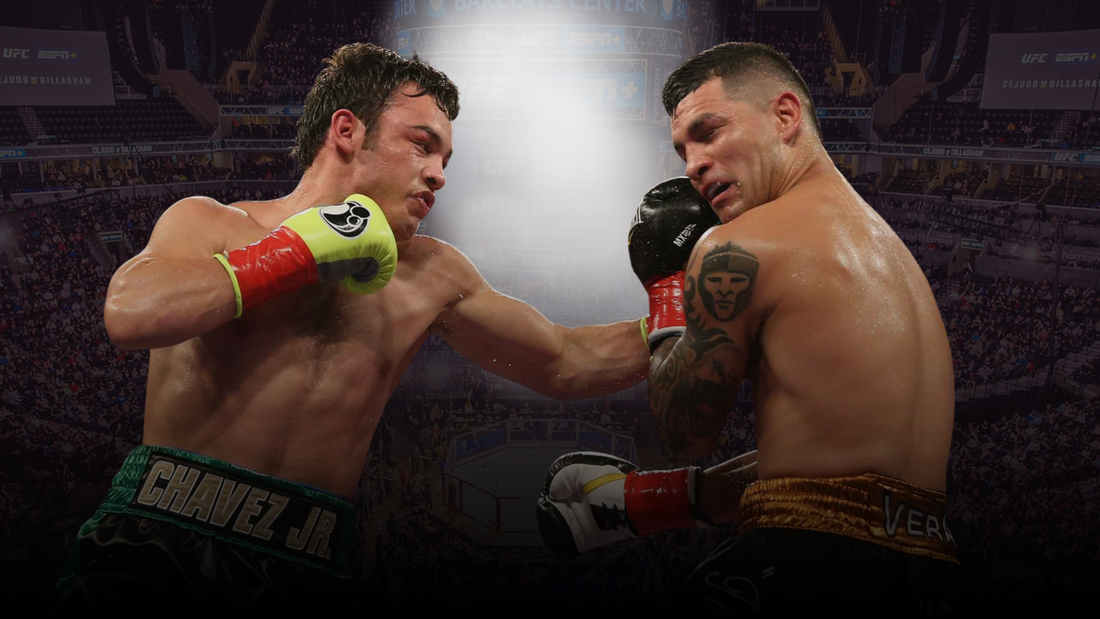
How Good Is Julio Cesar Chavez Jr. Actually? An In-Depth Look at His Boxing Career
By Arslan Saleem June 29, 2025 14:14
Julio César Chávez Jr., son of Mexican boxing legend Julio César Chávez Sr., has long carried the weight of immense expectations throughout his professional career. With a record that includes 54 wins, 6 losses, and 1 draw, along with 34 knockouts, Chávez Jr. has proven to be a formidable fighter in his own right. Yet, questions persist about how his achievements stack up against the towering legacy of his father and the elite middleweight division. This article takes a comprehensive look at Chávez Jr.’s career, examining his skills, accomplishments, and challenges to assess just how good he truly is.
Chávez Jr. turned professional in 2003 and steadily built a reputation as a tough, durable middleweight. Standing 6 feet 1 inch tall with a reach of 74 inches, he possesses physical attributes well-suited for his weight class. Over his two-decade career, he has faced top-tier opponents, including Sergio Martínez, Canelo Álvarez, and Daniel Jacobs, showcasing both his potential and limitations.
One of Chávez Jr.’s career highlights came in 2011 when he captured the WBC Middleweight title by defeating Sebastian Zbik via unanimous decision. This victory marked a milestone, as he became a world champion and continued the Chávez family tradition. However, his reign was short-lived; he lost the belt to Sergio Martínez in 2012 by a unanimous decision in a bout where Chávez Jr. struggled to impose his style against the slick Argentine southpaw.
Technically, Chávez Jr. is known for his aggressive pressure fighting style, often relying on volume punching and physicality. While he has displayed moments of brilliance, critics have pointed to inconsistent conditioning and stamina issues that have hampered his performance in high-stakes fights. His tendency to fade in later rounds has been a recurring theme, as seen in his bouts against Martínez and Canelo Álvarez.
Speaking of Canelo, Chávez Jr. faced arguably the toughest challenge of his career in 2017 when he fought the Mexican superstar. The bout ended in a unanimous decision loss for Chávez Jr., with Canelo’s superior speed, defense, and ring IQ clearly on display. This fight underscored the gap between Chávez Jr. and the elite of the division, highlighting areas where he fell short.
Despite these setbacks, Chávez Jr.’s power remains a significant asset. With 34 knockouts out of 54 wins, his ability to finish fights is undeniable. His punching power, combined with his size, has allowed him to dominate many opponents and maintain relevance in the competitive middleweight landscape.
Beyond the ring, Chávez Jr.’s career has been marked by controversies and personal struggles, including issues with weight management and discipline, which have affected his consistency. These factors have contributed to a career that, while respectable, has not fully lived up to the lofty expectations set by his family name.
In reflecting on his career, Chávez Jr. has acknowledged the pressure of his legacy. In an interview, he stated, “Being the son of Julio César Chávez means carrying a lot of responsibility. I’ve had my ups and downs, but I fight with heart every time I step into the ring.” This candid admission reveals a fighter who understands both his strengths and shortcomings.
Julio César Chávez Jr. is a skilled and powerful middleweight who achieved the notable feat of becoming a world champion. However, inconsistencies in conditioning and performance against top competition have limited his ascent to the very top tier of boxing. While he may never eclipse the legendary status of his father, Chávez Jr.’s career remains a testament to perseverance and the complexities of forging one’s own path under the shadow of greatness.
His record, 54-6-1 with 34 KOs, reflects a fighter who has earned respect but also invites debate about what might have been had circumstances been different. For boxing fans and analysts alike, Chávez Jr. represents a compelling study of talent, legacy, and the harsh realities of professional boxing

































































